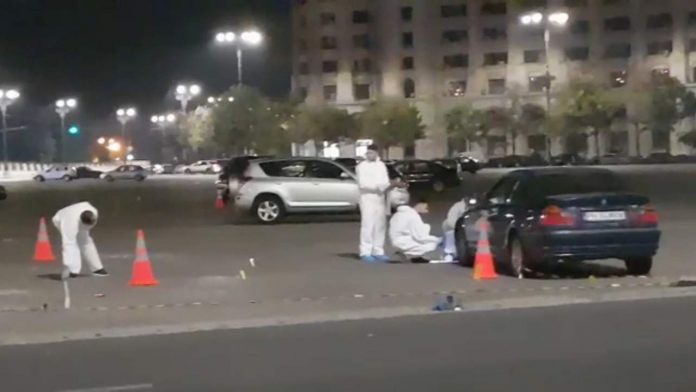Romanians were outraged over the kidnapping and grisly killing of a 15-year-old teenager girl in the southern town of Caracal this summer.
A weak police response and mishandling of the case led to street protests and exposed the potential effects of the ruling Social Democrats’ contentious judicial reforms they embarked on in 2017.
After delaying ruling on the changes for a record seven times, the Constitutional Court ruled on July 29 that the changes were unconstitutional, sending them back to parliament for debate based on the court’s recommendations.
Amid the protests, Prime Minister Viorica Dancila declared war on crime. „There will be no mercy, no exceptions, no compromises, and no delays: I declare a war against crime,” she said on July 31 days after the kidnapping and murder of 15-year-old Alexandra Macesanu and the linked abduction and murder of Luiza Melencu, 18, when public anger was high.
„People’s anger these days is justified. But Romanians should not be afraid. Our country does not belong to criminals, rapists, pedophiles, and human traffickers.”
The prime minister, under pressure to act, immediately called for a referendum about tougher sentences for murderers, rapists, and pedophiles.
Her call was widely mocked, including by President Klaus Iohannis, since the prime minister has no authority to call a referendum. Iohannis remarked, „The government should ask if it was not the moral author of this tragedy.”
Tragically, the comments may have been on target. Figures released this week from the National Penitentiaries’ Administration show shockingly high numbers of prisoners convicted of violent crimes who were eligible for early bail under the July 2017 law have reoffended and are back in prison. Others are suspected of committing violent crimes and have yet to face trial.
Prison authorities said a total of 21,049 detainees have been released from Oct. 19, 2017 to Sept. 8, 2019 for reasons including their cells are too small or unhygienic. That’s an average of 30 prisoners a day being set free.
Of those, about 7,000, almost a third, were people convicted of violent crimes such as murder, rape, robbery and pedophilia. Broken down, that’s 943 for murder, 3,049 robbers and 634 rapists, 110 for sex with a minor.
A total of 498 have re-offended and are back behind bars.
In figures, that’s 70 murders (under the old and new penal codes), 47 rapes, six sex offenses against children, and more than 360 robberies, according to the documents.
A mere 312 of those released in the last two years had been sentenced for corruption and corruption-related cases, G4Media reported. The Social Democrats’ judicial overhaul_ of which this early parole law was a part_ sparked the largest protests since the collapse of communism
By permitting parole, Parliament has allowed the release hundreds of violent prisoners. Some show no signs that they were rehabilitated during their time in prison and have continued to commit murders and rapes upon release.
The public only learned about the statistics after Liberal Party lawmaker Florin Roman asked Justice Minister Ana Birchall for the statistics.
The information became public, as violent crime continued to make the headlines. Two of the suspects involved in killing in downtown Bucharest this week were beneficiaries of the 2017 law according to G4Media. One was serving a 17-year sentence and the other a 15-year sentence for murder but were granted early parole after serving two-thirds of their sentence after the law came into effect.
A 30-year-old man was killed, and another was severely injured after rival gangs wielding sticks and swords clashed over human trafficking rings in Britain. The violence was even more shocking as it took place outside Romania’s Parliament on a Sunday evening. Five men are being questioned over the killing.
Some of the information had already been released. Last year, the former Justice Minister Tudorel Toader confirmed that almost 11,000 prisoners had been granted early release from October 2017 to November 2018.
Even by January this year, a total of 188 of those released had been convicted again of a crime and put back behind bars after committing violent crimes such as rape, attempted murder, and murder, he said. Many more murders, robberies and rapes have been committed by reoffenders since then.
Of course, there are always repeat offenders who commit crimes after they’ve been released and are then sent back to jail. For this reason, in cases where criminals have been exceptionally violent or cruel and have shown no remorse, they are sentenced to life in prison with no chance of parole. In Britain, we had the case of Ian Brady and Myra Hindley
The series of so-called reforms to the judicial system initiated by the Social Democrats had already proved controversial and unpopular, drawing criticism from the European Union, the U.S. State Department, magistrates and hundreds of thousands of ordinary Romanians who feared it would dilute the fight against white-collar crime.But we the more sinister consequences of the law have been exposed: hundreds of robberies, dozens of murders and rapes, and sex crimes.
Alison Mutler is an experienced British journalist based in Bucharest and has covered Romania, Moldova and occasionally Bulgaria and Hungary for almost 30 years. She first reported from Romania, Bulgaria and Moldova before communism ended, and was In Romania, working for British television station ITV during the 1989 anti-communist revolt. She recently left the Associated Press after 25 years. Her Twitter handle is @AlisoNJMutler





















[…] The unseen side of Romania’s disputed parole law: murders, rapes and child sex crimes. […]
[…] The unseen side of Romania’s disputed parole law: murders, rapes and child sex crimes. […]